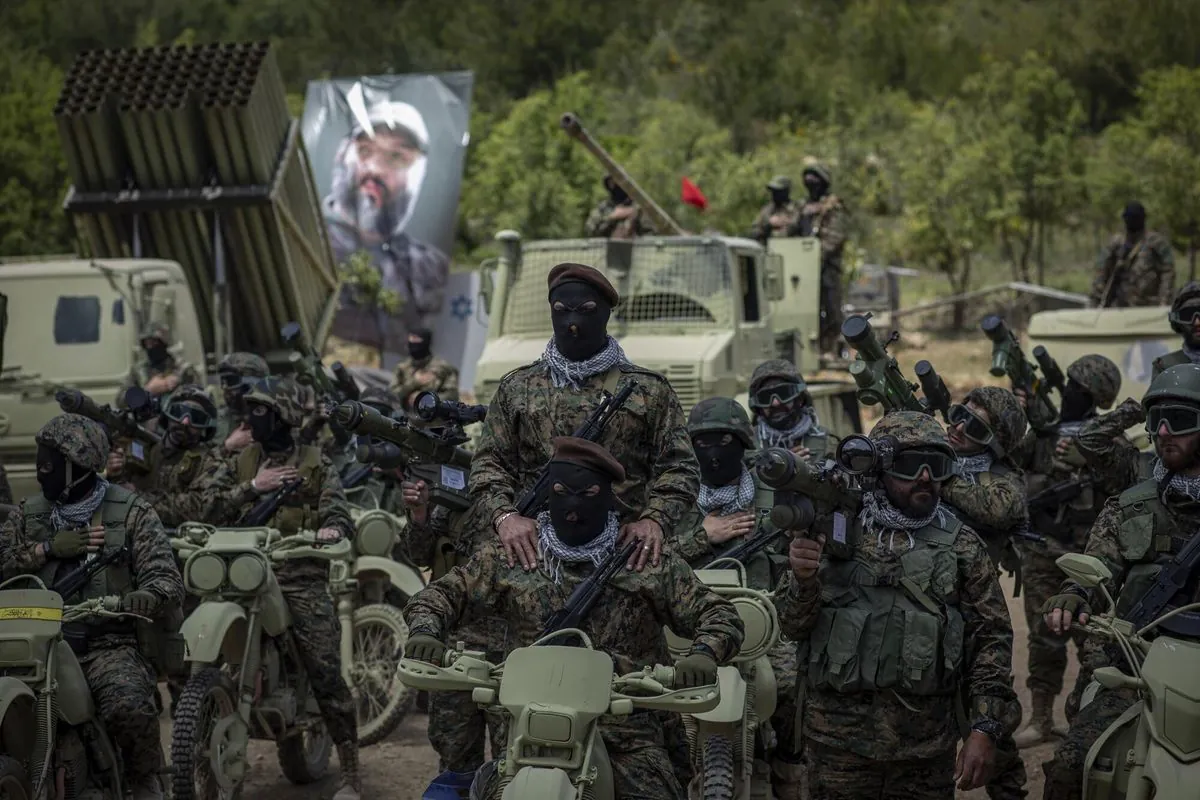The conflict between Israel and Hezbollah has intensified in recent days, raising concerns about a potential all-out war. The escalation began with a series of deadly attacks on Hezbollah's communication devices, followed by retaliatory rocket launches into northern Israel.
On September 20, 2024, Israel reportedly eliminated Ibrahim Akil, the commander of Hezbollah's elite Radwan unit, in a strike on Beirut. This attack resulted in at least 14 fatalities and marked the deadliest Israeli operation in the Lebanese capital since the 2006 conflict.
The recent events have heightened tensions along the Israel-Lebanon border, where exchanges of fire have been ongoing for the past 11 months. These clashes have resulted in approximately 600 casualties in Lebanon, including around 100 civilians, and 50 military and civilian deaths in Israel.
Hezbollah, founded in 1985 during the Lebanese Civil War, has evolved into a significant military and political force in Lebanon. The group's military wing is estimated to have between 25,000 and 50,000 fighters, and it receives substantial support from Iran. Hezbollah's rocket arsenal is believed to surpass that of many nation-states, posing a significant threat to Israeli cities.
The current situation bears similarities to the 2006 Israel-Hezbollah War, which lasted 34 days and resulted in over 1,000 Lebanese and 165 Israeli deaths. However, the potential for an even more destructive conflict looms, given Hezbollah's increased military capabilities and Israel's advanced defense systems, such as the Iron Dome.
Israeli officials have hinted at the possibility of expanding military operations against Hezbollah, with some advocating for a ground invasion of Lebanon. The goal would be to create a buffer zone in southern Lebanon, pushing Hezbollah fighters away from the border. However, such a move could lead to a prolonged and destabilizing conflict, reminiscent of Israel's 1982-2000 occupation of southern Lebanon.
The international community, particularly the United States and its allies, has been exerting pressure on both sides to prevent further escalation. The United Nations Interim Force in Lebanon (UNIFIL), deployed since 1978, continues its efforts to maintain peace along the Israel-Lebanon border.
As tensions rise, the potential consequences of a full-scale war between Israel and Hezbollah are dire. The conflict could result in widespread destruction in Lebanon, intense missile attacks on Israeli cities, and further destabilization of an already volatile region.
"The barrages won't end – and Israelis won't be able to return to homes in the north – until Israel's campaign in Gaza ends."
The situation remains fluid, with both sides seemingly poised for further action. The international community watches anxiously, hoping for a de-escalation of tensions and a return to relative stability in the region.
